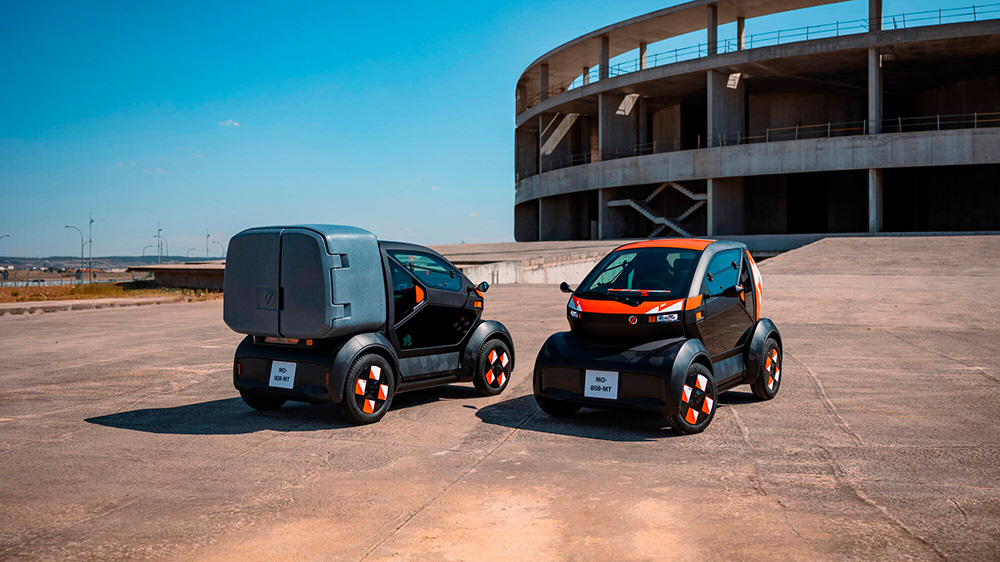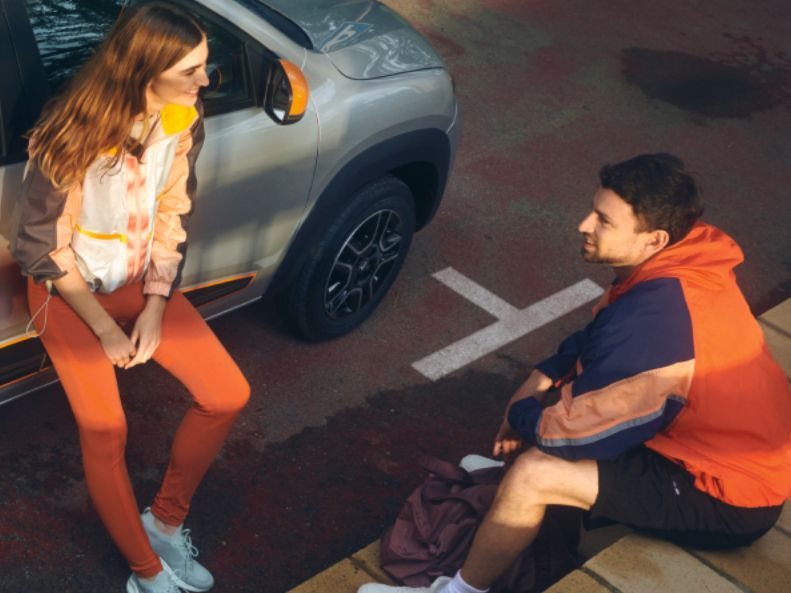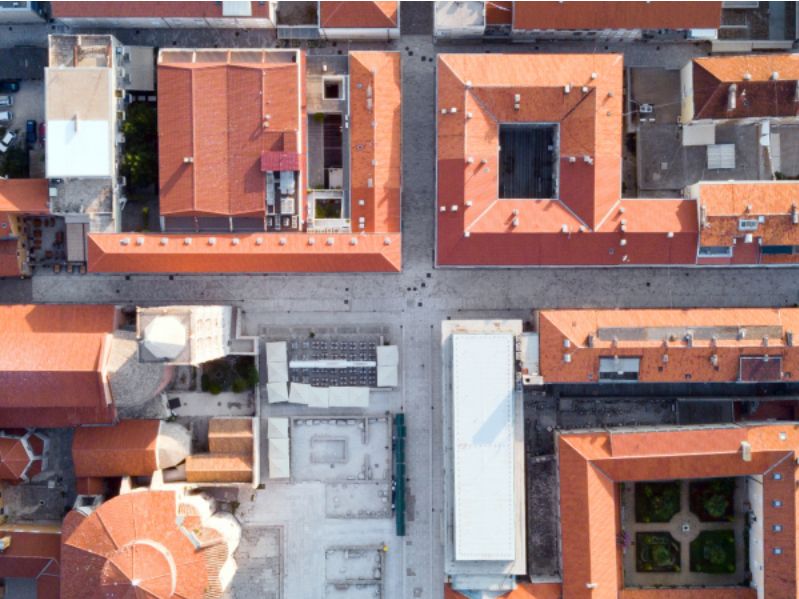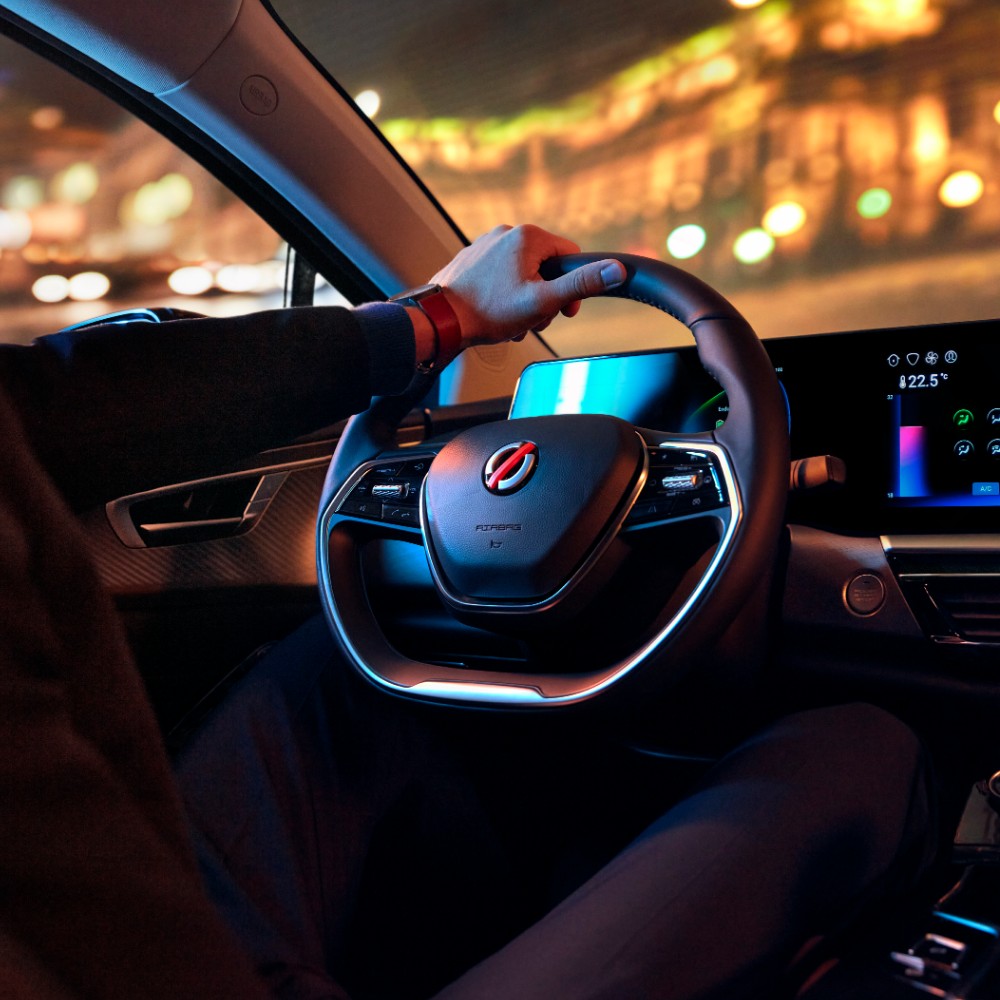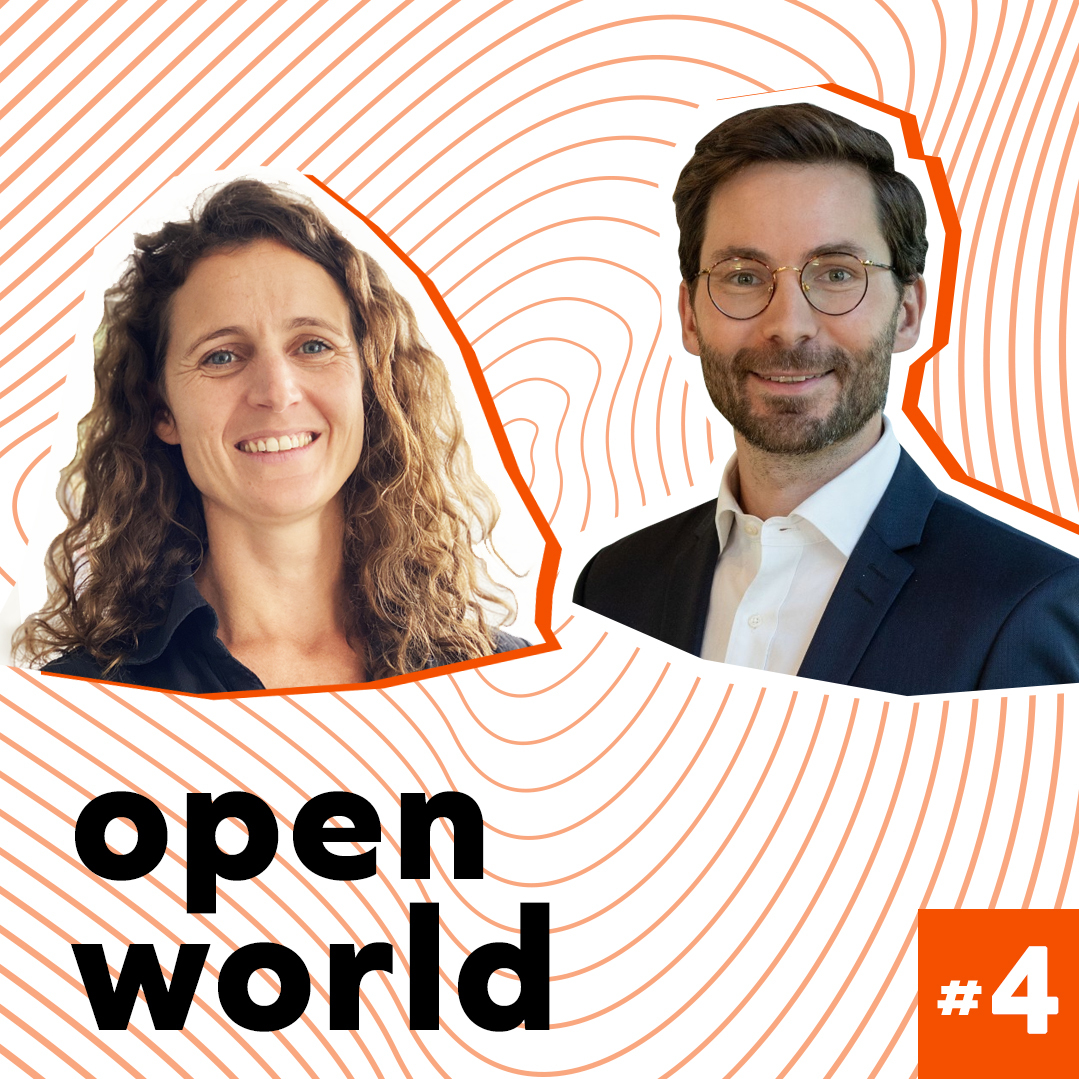REBOOT 1: soothing the urban spaces
As the cities of tomorrow will no longer accommodate large flows of traffic, part of the space previously given over to cars will be redistributed to meet different needs. This reallocation will accelerate the decarbonization of travel, in particular with the development of cycle paths and infrastructure for storing and maintaining bicycles, parking and recharging spaces for electric vehicles, parcel storage facilities, pedestrian walkways, etc.
This reclaimed street space will open up a number of possibilities for the greening of areas, whereas trees and other shrubbery can also be used to bring nature to other forms of open space, such as rooftops or alcoves. The greening of urban spaces has multiple benefits. It helps to control air pollution, promotes the return of biodiversity to cities and creates shady, cool islands in hot weather. As a result, the use of air conditioning, which is harmful to the environment, decreases both in buildings and cars. The use of photovoltaic shading systems over parking areas, which shelter cars from the sun’s rays while recharging their batteries, also has an impact on maintaining this “temperate city”.
REBOOT 2: meeting every mobility need
Many obstacles prevent seamless and stress-free travel in cities, such as being stuck in traffic jams, looking for a parking space for a long time once you arrive at your destination, or having to pay fixed costs for your car whatever the circumstances. The development of multimodal transport solutions, via increasingly extensive public transport and soft mobility services, can address these issues. However, this is not the only solution.
The “Vehicle as a Service” (VaaS) model offers an effective and complementary response. The private car is no longer the be-all-and-end-all of transport. With VaaS, customers can select the vehicle best suited to their needs, by purchasing, leasing or car-sharing, and can opt – just as flexibly – for exclusive services to simplify their lives, as well as reducing their costs and carbon footprint. Public transport or cycles for commuting, a compact electric car for effortless door-to-door travel, a hybrid family car for a long trip as a group, etc. Mobility services should be flexible, both when travelling around the city and beyond its limits.
REBOOT 3: optimizing daily life through data
The cities of tomorrow will be smart: a city made “intelligent” through effective data management, with a view to providing services to people. With real-time mapping of the use of public space, the different local stakeholders can better tailor their solutions to users’ needs, whether in terms of mobility, energy, cleanliness, or safety, etc. For example, when applied to mobility services, if companies are aware of the traffic flows in a given place and at a given time, they can model the situation and develop a range of services that will improve the experience for everyone.
Data also has a crucial role to play in balancing the electricity grid, in order to maximize the use of low-carbon, renewable energy in the city’s energy mix. Smart charging of electric vehicles is a perfect example. The car and the electrical grid are connected via the charging station and a smartphone app – the car is charged at a time when electricity is most available on the grid, i.e. when it is the cheapest and least carbon-intensive. Conversely, when demand for electricity from the grid is greater than the overall supply, charging of the vehicle is suspended. If using a bi-directional charging system, the vehicle can even return electricity to the grid, avoiding the need to produce electricity from fossil fuels. In this way, data can be used to improve user comfort and to drive forward the energy transition.
REBOOT 4: pooling resources
In the dense and geographically-constrained areas that constitute cities, the sharing of spaces and services is both the preferable and easier option. Sharing resources is already a given in an urban environment. Cramped housing provides limited facilities to meet basic needs. To satisfy ever more diverse expectations, city residents are making the most of public space or “third places”. The rise in remote working and mobile professions is driving the creation of shared “co-working” spaces, and leisure activities and entertainment are consumed in many dedicated common spaces, etc.
In terms of mobility, people in the city are rarely far away from a transport service. Shared use of cars, bikes and scooters is a convenient solution, whether vehicles are left at drop-off stations or on the street after use. With a simple smartphone, anyone can locate the most appropriate mode of transport available in the immediate vicinity. In some cases, a smartphone is also used as a pass to operate the vehicle and pay for the journey. Sharing urban spaces and services provides a flexible solution to a wide range of needs.
Smooth, mobile, connected, shared… life will be enriching in the cities of tomorrow! Cities must strike a balance between individual benefits – in particular, consumption “on demand” – and the collective benefits of protecting the environment public health, etc. Mobilize already has solutions: a reboot to move towards simpler, more resilient, and more collective transport services, where citizens are free from the shackles of personal cars and can actively contribute to achieving carbon neutrality within the city.
